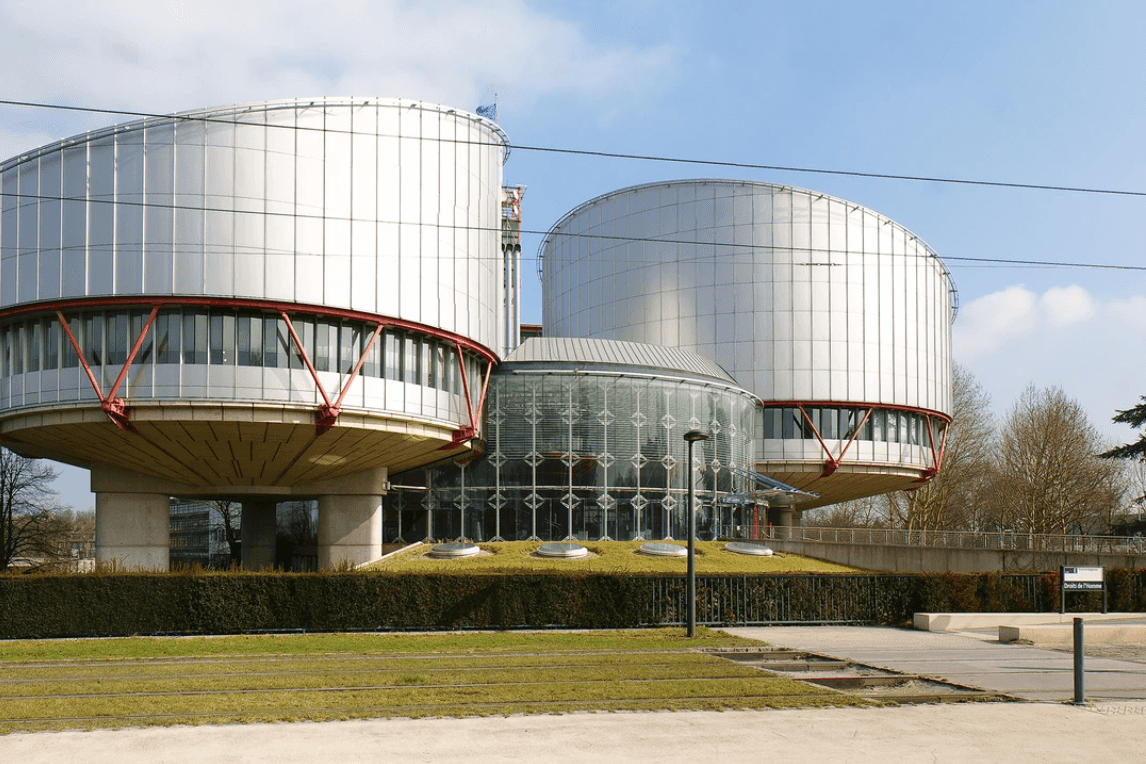
The European Court of Human Rights (ECHR) has ruled that Georgia violated the right to a fair trial in a case involving two key judiciary figures: a judge accused of belonging to the ‘clan’ in Georgia’s judiciary and a constitutional court judge currently reviewing the lawsuits against Georgia’s foreign agent bill.
On 29 August, the ECHR found that Georgia breached the right to a fair trial for Tamar Khachapuridze and Kakhaber Khachidze, along with their son Davit Khachidze.
In August 2016, Khachapuridze appealed to police alleging that Giorgi Mikautadze, who was then chair of the Tbilisi City Court, insulted and physically assaulted her and her 13-year-old son at a Black Sea resort beach in Gonio, Georgia.
The Prosecutor’s Office opened an investigation into the claim of violence against a minor, but swiftly detained Tamar and her husband Kakhaber Kachidze instead on charges of making threats in connection to legal proceedings. These allegations were made by Mikautadze, who faced no charges nor resigned.
Two years later, local Khelvachauri court judge Khvicha Kikilashvili found the couple guilty of hooliganism, and fined one ₾2,500 ($930) and the other ₾3,500 ($1,300).
The ECHR ruled on Thursday that Kikilashvili failed to ensure a fair trial for the couple, having excluded them entirely from trial proceedings, as well as prohibiting their son’s testimony.
The ECHR also noted that the Georgian court did not ensure that tourists who had reportedly witnessed the incident were called for cross-examination, relying instead on their written statements.
The ECHR ordered Georgia to pay €1,000 ($1,100) in compensation to each parent.
The ECHR rejected Davit Khachidze’s claim that his rights under the prohibition of torture and respect for private life had been violated.
Giorgi Mikautadze, who allegedly split the teenager’s lip and damaged his teeth in 2016, has continued to have a successful career in the judiciary, despite advocates of judicial reform accusing him of being part of a ‘clan’ within the judiciary, a group accused of exerting considerable control over judicial appointments and decisions.
Mikautadze’s subsequent tenure as the head of the High Council of Justice, an independent institution responsible for the oversight of Georgia’s judicial system, was marked by allegations of conflicts of interest and a lack of transparency and inadequate vetting of nominees for lifetime appointments to Georgia’s Supreme Court, which he has led since late 2019.
The ECHR ruling regarding Kikilashvili was handed down on the same day he was presiding, alongside eight other members, over a constitutional court plenum reviewing the combined lawsuits against the controversial foreign agent law. The case is seen by many as a critical test for the court to demonstrate its independence from the ruling party.









